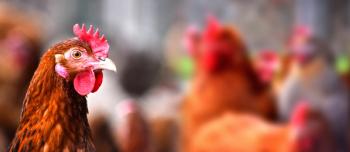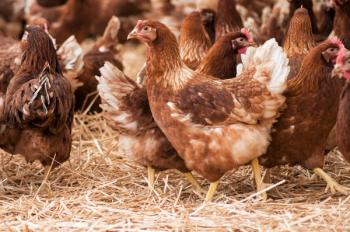
Rules might open doors for more DVM consultants
FORT COLLINS, COLO. - There doesn't appear to be a correlation between methods of manure handling and overall udder health, according to the United States Department of Agriculture's (USDA) recently released report "Nutrient Management and the U.S. Dairy Industry in 2002".
FORT COLLINS, COLO. — There doesn't appear to be a correlation between methods of manure handling and overall udder health, according to the United States Department of Agriculture's (USDA) recently released report "Nutrient Management and the U.S. Dairy Industry in 2002".
The report takes an in-depth look at nutrient-management practices on 1,013 U.S. dairy farms in 21 major dairy states via the National Animal Health Monitoring System (NAHMS).
Waste management consultants by Herd size
"There's some data that says that management is more than just spreading manure; it must be spread properly," says Brian McClusky, DVM, veterinary medical officer with NAHMS, part of USDA's Animal and Plant Health Inspection Service (APHIS).
The report was designed to provide information from 83 percent of U.S. dairy operations and more than 85 percent of U.S. dairy cows. State and federal veterinary medical officers and animal health technicians collected the data through interviews and inspections that gauged compliance with the 2002 Farm Bill and subsequent regulations on concentrated animal feeding operations (CAFO), which requires operators to capitalize on the nutrients in manure for crops and pastures while minimizing its negative environmental impact, especially as a water pollutant.
Waste management consultants by region
In February 2003, the U.S. Environmental Protection Agency (EPA) published addendums to the Clean Water Act for CAFOs, and the NAHMS study measures compliance, animal health, environmental impact of differing nutrient-management processes and operators' understanding of government requirements. Some of the findings include:
- More than half of large operations (500 cows or more) analyzed manure for nutrient content.
- The majority of large operations applied manure a minimum of 1,000 feet from a body of water.
- About half of large and medium operations (100 cows to 499 cows) had written nutrient management plans, compared to 23.3 percent of small operations (less than 100 cows).
E. coli incidence drops, FSIS reports
The report also included changes in baseline dairy cattle health and management practices, strategies to address Johnes's disease, management factors associated with the presence of certain food-safety pathogens, preparedness of producers to respond to foreign animal diseases, as well as a profile of animal waste handling systems used on U.S. dairy operations.
Agenda
DVM opportunities
Though veterinarians are not responsible for enforcing CAFOs or daily operating procedures for their clients, they could be. More consulting opportunities might be available for DVMs due to continued understanding and enforcement of the 2002 Farm Bill, as well as addendums to other environmental legislation, McClusky says.
"The veterinarian's obligation is to the health of the animal and the production of that food, and if either is in jeopardy, then it's your obligation to help remedy that," he says. "Private veterinary practitioners were about 5 percent of the consultants to farms, so it can be a burgeoning niche that practitioners can jump into."
Newsletter
From exam room tips to practice management insights, get trusted veterinary news delivered straight to your inbox—subscribe to dvm360.




